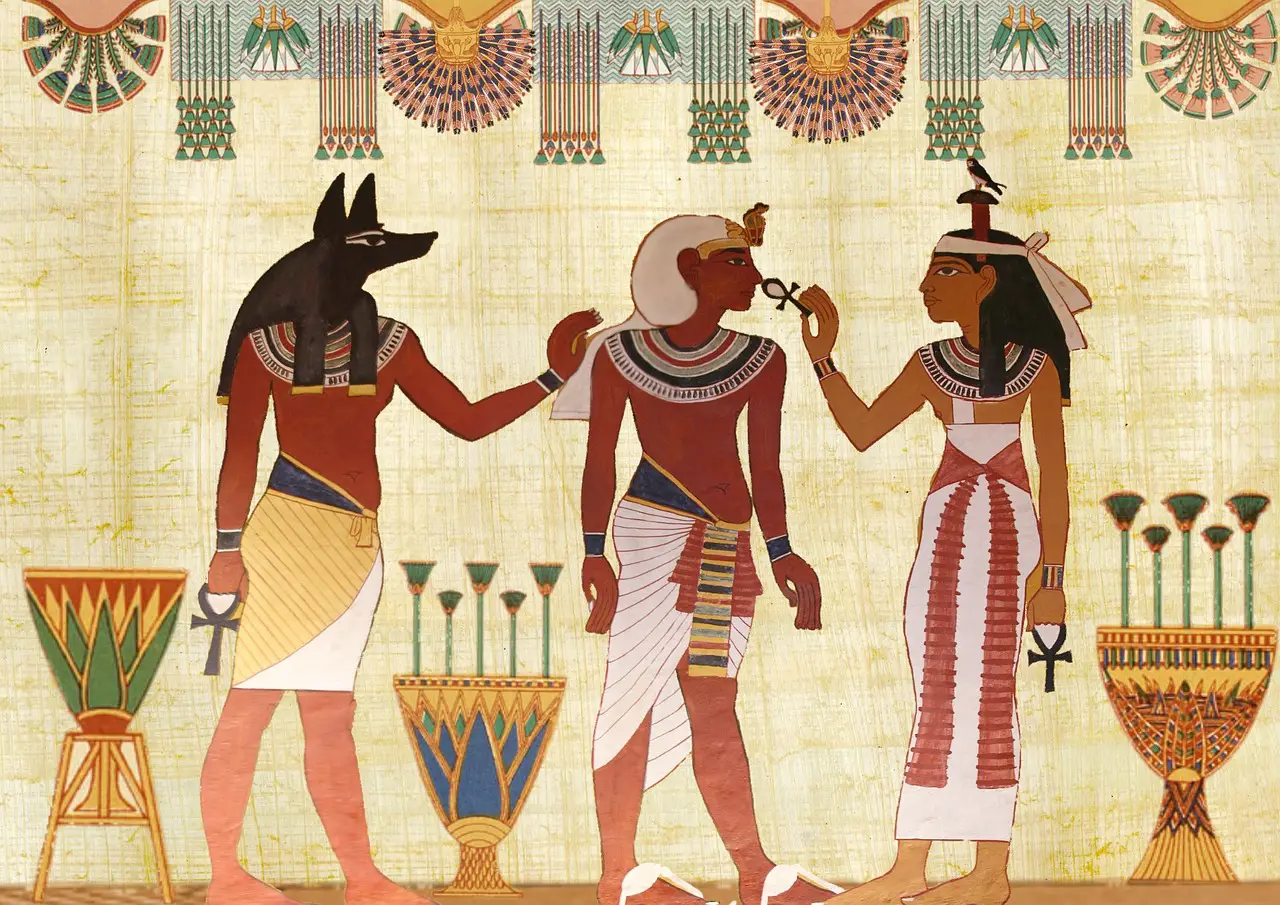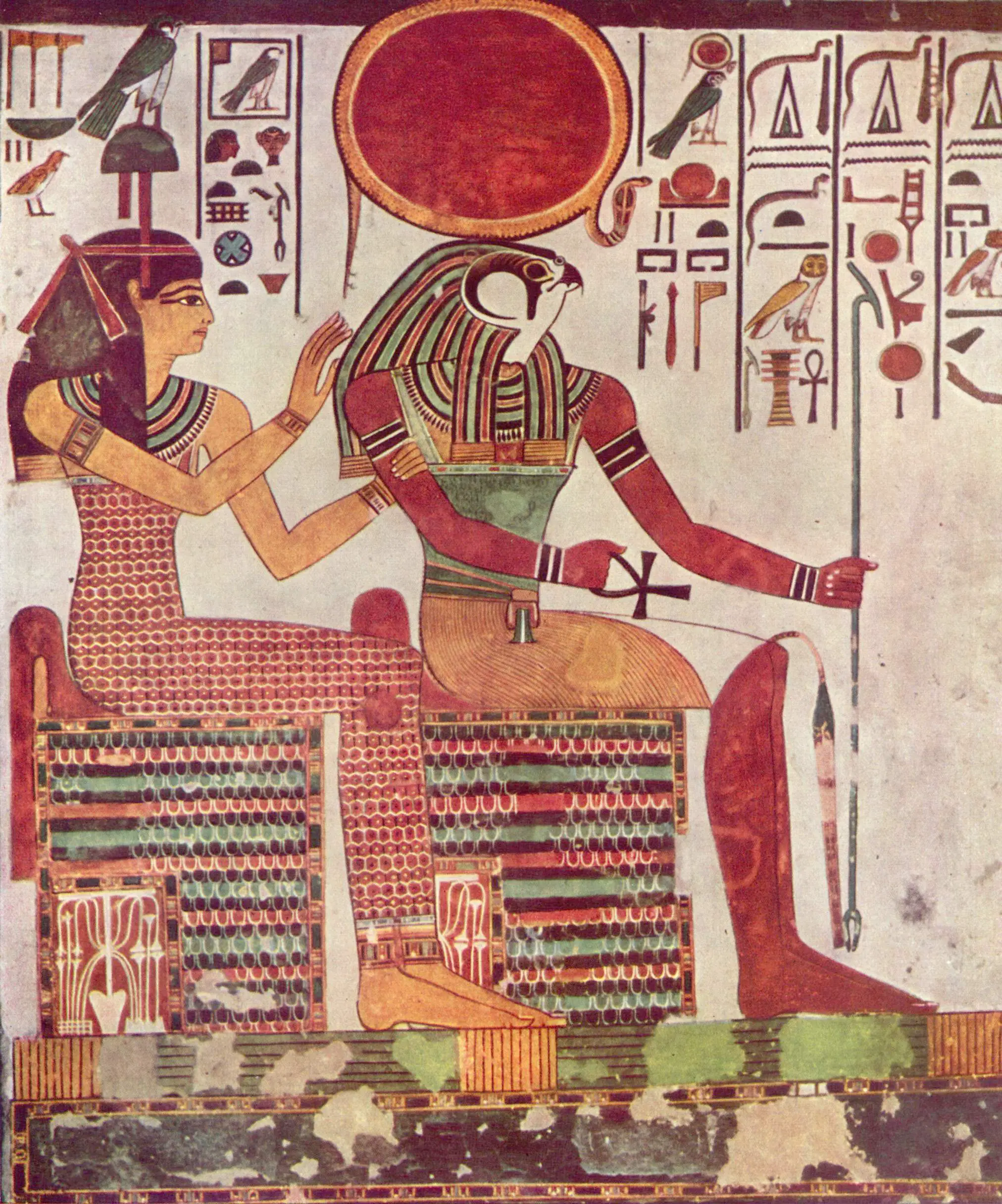Ancient Egypt is famous for its pyramids, sphinxes, and above all, the majestic Pharaohs. But have you ever wondered about the Pharaoh’s jobs and responsibilities? Well, roll up your sleeves; it’s time for a royal lesson.

Table of Contents
Pharaoh Jobs And Responsibilities
When we dissect pharaohs’ jobs and responsibilities, we unravel the thread of their intricate relationships with their subjects, gods, and the land itself. Not merely figureheads, their roles were deeply woven into the social fabric of Ancient Egypt, molding age-old traditions, laws, spirituality, art, and architecture. The Ancient Egyptian pharaohs may have exited the stage of world history, but their majestic trail endures – a spectacular saga that transcends time.
Who Was A Pharaoh?
In the realm of Ancient Egyptian society, the Pharaoh wasn’t just a ruler. He was considered a living God, an ambassador of balance and harmony, ruling over Upper and Lower Egypt. Intriguingly, the title ‘Pharaoh,’ which means ‘great house,’ only emerged during the New Kingdom, while before, they were simply called kings.
Was The Pharaoh A Central Figure In Ancient Egypt?
Every aspect of life in Ancient Egypt, from the life-giving Nile River to the building of the Great Pyramid, revolved around the Pharaoh, the potentate at the top of the hierarchy. The Pharaoh was more than a political figure. He was the spiritual, military, and administrative head of the Egyptian kingdom.
Pharaoh: The Keeper of Ma’at
Arguably the most vital duty of the Pharaoh was upholding balance and order, the essence of Ma’at, an ancient Egyptian concept. Whether it was the Old Kingdom, Middle Kingdom, or the New Kingdom, the Pharaoh had to make sacrifices, execute justice, and ensure the flourishing of culture to maintain Ma’at.
Pharaoh As Priest

One cannot talk about Egyptian society or Egyptian religion without bringing up the close-knit relation between the Pharaoh and the Priesthood. He was the chief priest, the vehicle of communication between the gods and the common people. In the temple, the Pharaoh performed sacred rituals to appease the gods and maintain the prosperous flow of life.
The temple was the heartbeat of the spiritual life in Ancient Egypt. They were sacred spaces where the divine met the mortal, where the Egyptians believed their gods resided. Intricate rituals, performed by the Pharaoh or his priestly representatives, such as daily offerings, cleansing of the deity statues, and annual festivals, painted the canvas of spiritual life at temples.
Remember, in Ancient Egyptian, a temple wasn’t merely a place of worship; it was a roster of the royal priestly schedule— calendars on the wall detailed ritualistic routines. Functioning as the center of economic and social activities, the temple also had vast treasuries and granaries, administered by the Pharaoh. The generous heart of the Pharaoh in funding and endorsing the temples’ functions ensured continued public respect and service to the gods, fortifying the Pharaoh’s divine status among his subjects.
A Keeper Of Justice
The Pharaoh personified justice. He was considered the ultimate judge in the land. He issued laws, heard critical cases, maintained law and order, and resolved disputes.
Culture And Ancient Egyptian Art
It wasn’t all about divinity and rule. Ancient Egyptians had high regard for art and culture. Pharaohs played a pivotal role in nurturing and promoting Egyptian art. Many artistic and architectural miracles of history, like the enchanting frescoes and statuettes, blossomed under their patronage.
An Indispensable Figure In Ancient Egyptian History
Venturing through world history, we frequently cross paths with the grandeur of the Pharaohs. Be it the magnificent pyramids of the Old Kingdom, the administrative reforms of the Middle Kingdom, or the imperial dominance of the New Kingdom, traces of the Egyptian Pharaoh can be seen copiously layered in the annals of history.
The Pharaoh’s Role In Egyptian Warfare
They were not just administrative heads or spiritual leaders. Pharaohs were warriors who led armies. Often depicted in Ancient Egyptian art as great warriors, Pharaohs defended their borders fiercely and expanded their territories strategically.
End Of An Era
The end of the New Kingdom saw the decline of the Egyptian pharaoh’s power; high priests and foreign invaders began to wield more influence. Nevertheless, the tales of mystic divinity, grandeur, and heritage left by the Pharaohs continue to grip the world’s imagination.